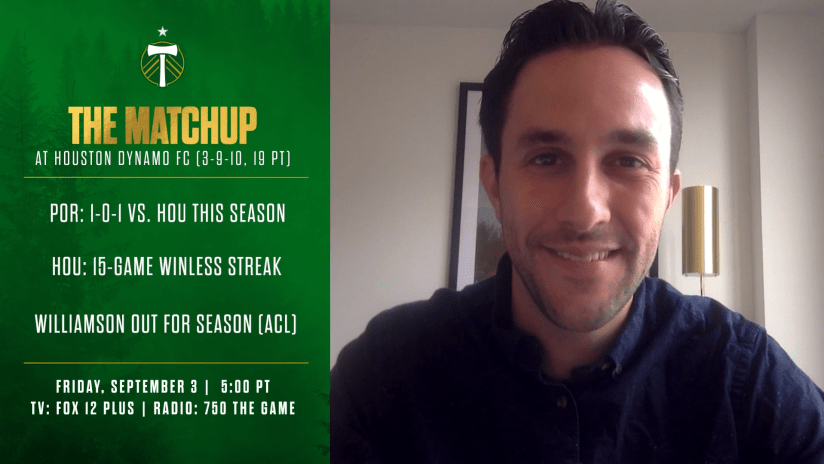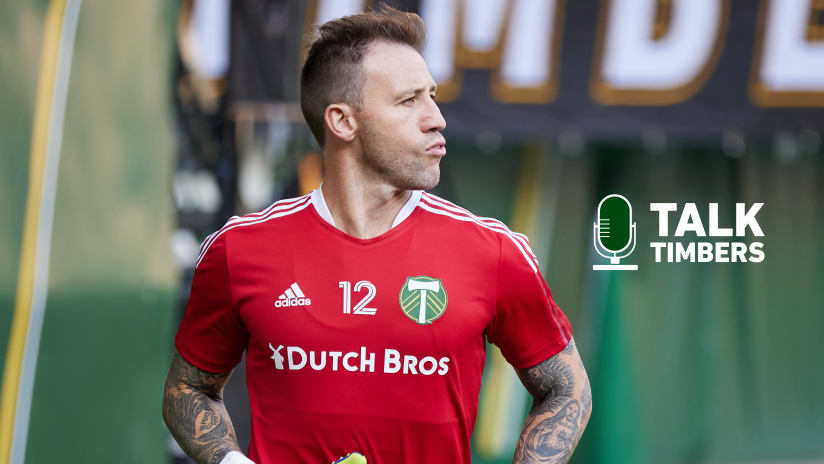BEAVERTON, Ore. — The Portland Timbers know about playing from need. They did so five days ago, and although the Timbers' season wasn’t on the brink last Sunday in Seattle, their trajectory was pointed in that direction. As Timbers head coach Giovanni Savarese said on Tuesday when asked about the 2-0 win over the Sounders, “It was a very important win for so many reasons.”
Much like the Timbers team that played at Lumen Field, Portland’s next opponent, Houston Dynamo FC, is also in need. Houston has fallen to last place in Major League Soccer’s Western Conference and has won a league-low three games (out of 22) this season. The person who had been overseeing soccer operations, general manager Matt Jordan, left the team earlier this week. “We are where we are in the standings,” majority owner Ted Segal said, “and we are in a fifteen-game winless streak, which has coincided a lot with my short stint as owner.”
For Savarese, that makes the Dynamo especially dangerous.
“These are, for me, the most difficult games, when you play these types of teams,” Savarese said on Wednesday. “We need to make sure that we arrive there with [our] ideas clear, making sure that we are going to execute: here are the things that we have worked on these past two days … We have to arrive with the right mentality to be able to perform.”
If that sounds similar to what Savarese says about every opponent, there’s a reason. It’s part of the basics when you prepare a team for games at this level.
In addition to all of the internal preparation you do — the physical, psychological, and tactical elements — there has to be a recognition of what you’re up against. In Major League Soccer, that opponent always has the ability to beat you, even if they shouldn’t.
The Timbers have been reminded of in 2021, like in their two losses at expansion Austin FC. They could be reminded further if they let the Dynamo’s struggles overshadow the team’s talent.
Forward Maxi Urruti, a former Timber, is a talent known to Portland fans. He is tied for the Houston lead in goals this season with six. Two-time United States international Fafà Picault shares that lead with Urruti, while players like centerback Tim Parker and midfielder Joe Corona also have multiple appearances for the United States. Zarek Valentin is an established defender in MLS, attacker Tyler Pasher has given the Timbers trouble this season, and Argentine Matías Vera has been efficient both with and without the ball. The Dynamo have players capable of taking advantage of unprepared opponents.
“They have good quality,” Savarese said. “They have some good players. That's why I think this game is going to be a very tough game.”
Savarese also knows his team has to improve. Though he lauded the Timbers’ result in Seattle, he singled out one area of focus – the same item fans and commentators were discussing after Sunday’s final whistle.
“We have to get better in some areas, and especially on defending corners,” he said. “We allowed [the Sounders] to get into some spaces [too easily]."
The Sounders earned 12 corner kicks on Sunday. Three times, resulting shots hit goalposts.
“I think the coaching staff can do something better, as well …," Savarese said. "Maybe going into more ideas, making sure that we are better at those moments, [at] defending set pieces. Because that's the only thing in the game [that gave] us problems. Everything else, we did very well.”
That was Portland’s endpoint last week. This week, they can focus on details. Whereas preparation for the Sounders brought bigger, more defining questions into view, the Timbers are back to incremental improvements. Over the course of five days, Portland changed course.
Now it’s Houston’s turn, and if they approach their moment of need with the same urgency, the Timbers will have to battle desperation in addition to the Dynamo.
“When there's crisis, when there are difficulties, when [teams] have people being let go, there's a situation which there's an alarm …,” Savarese said. “That’s when teams become more dangerous.”
All the latest Timbers FC news:
- INJURIES | Savarese, on Williamson: "It was a little bit of déjà vu”
- THE MATCHUP | Jake Zivin with a preview of #HOUvPOR
- PODCAST | Steve Clark joins Talk Timbers and explains his phone call celebration
- MEDIA | Savarese on building from Seattle win ahead of Houston
- FARLEY | Sebastián Blanco's recovery came full circle with his goal in Seattle
















